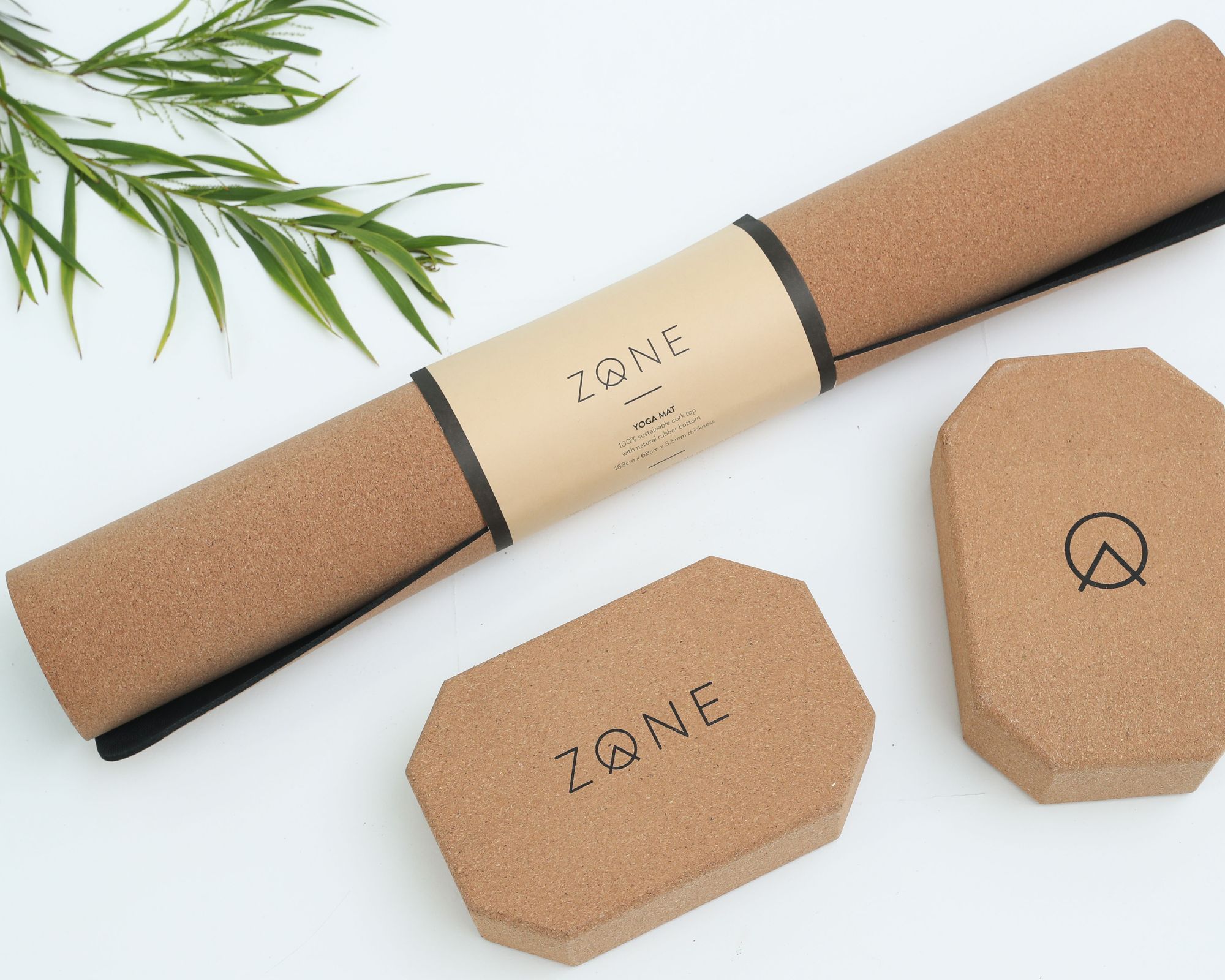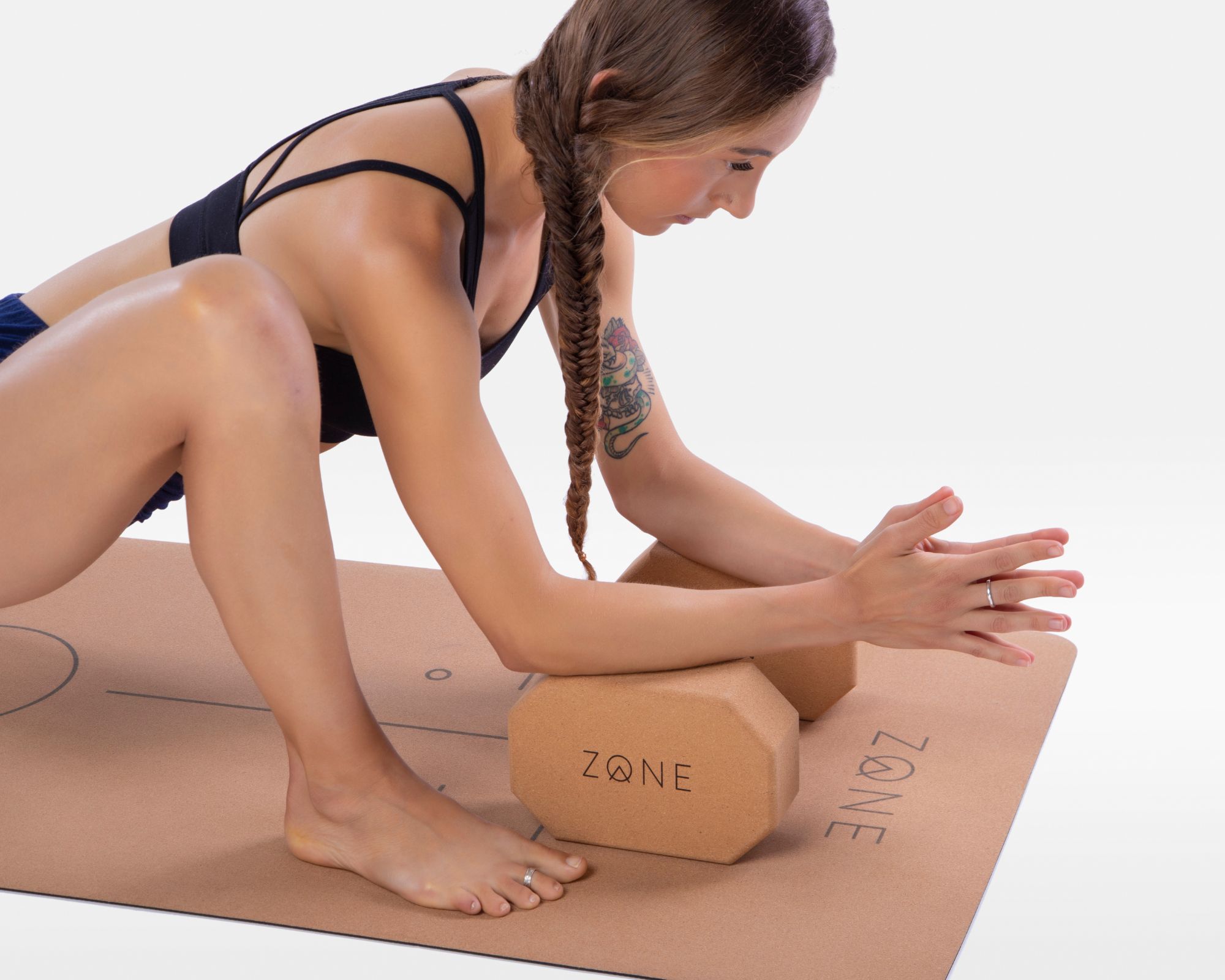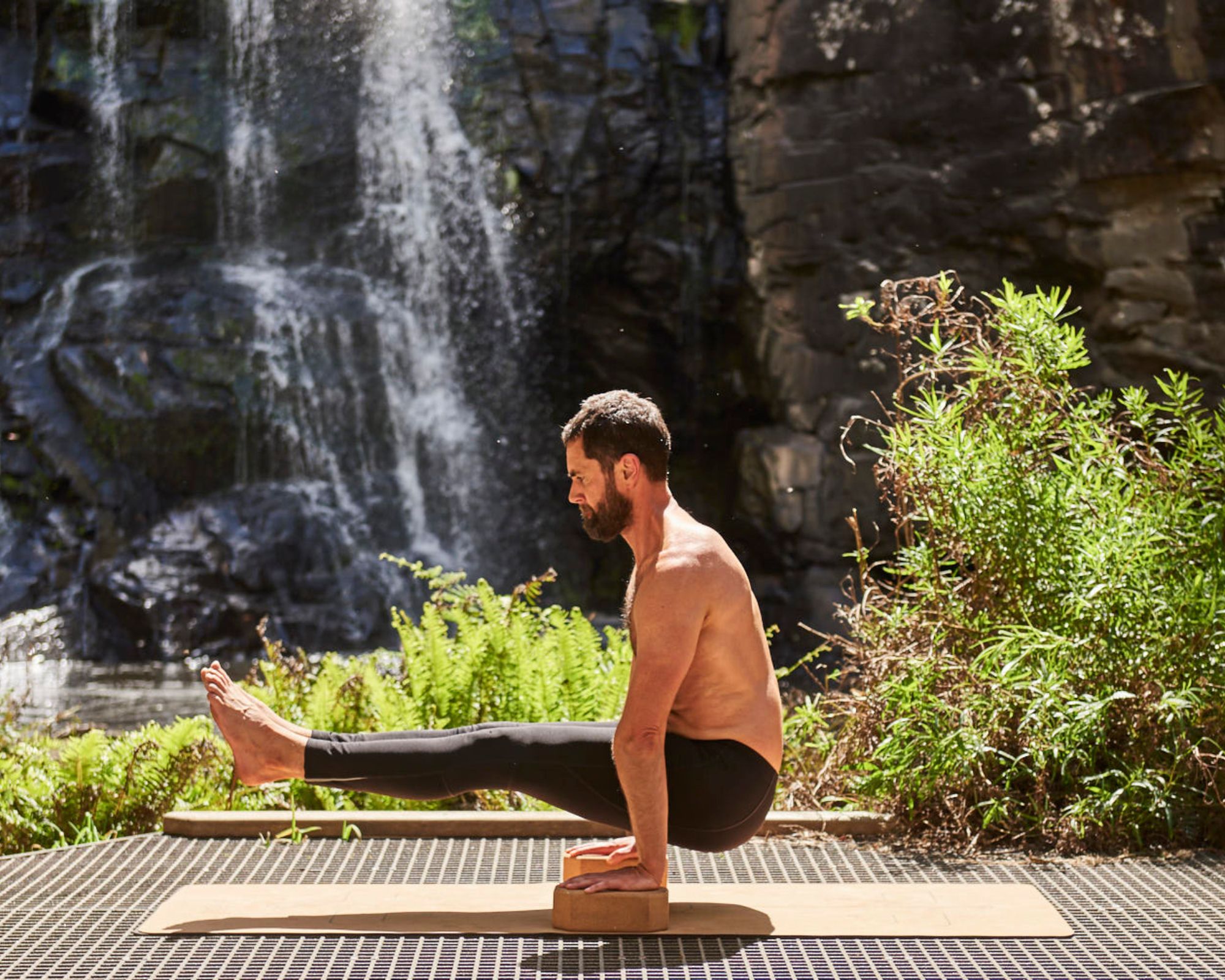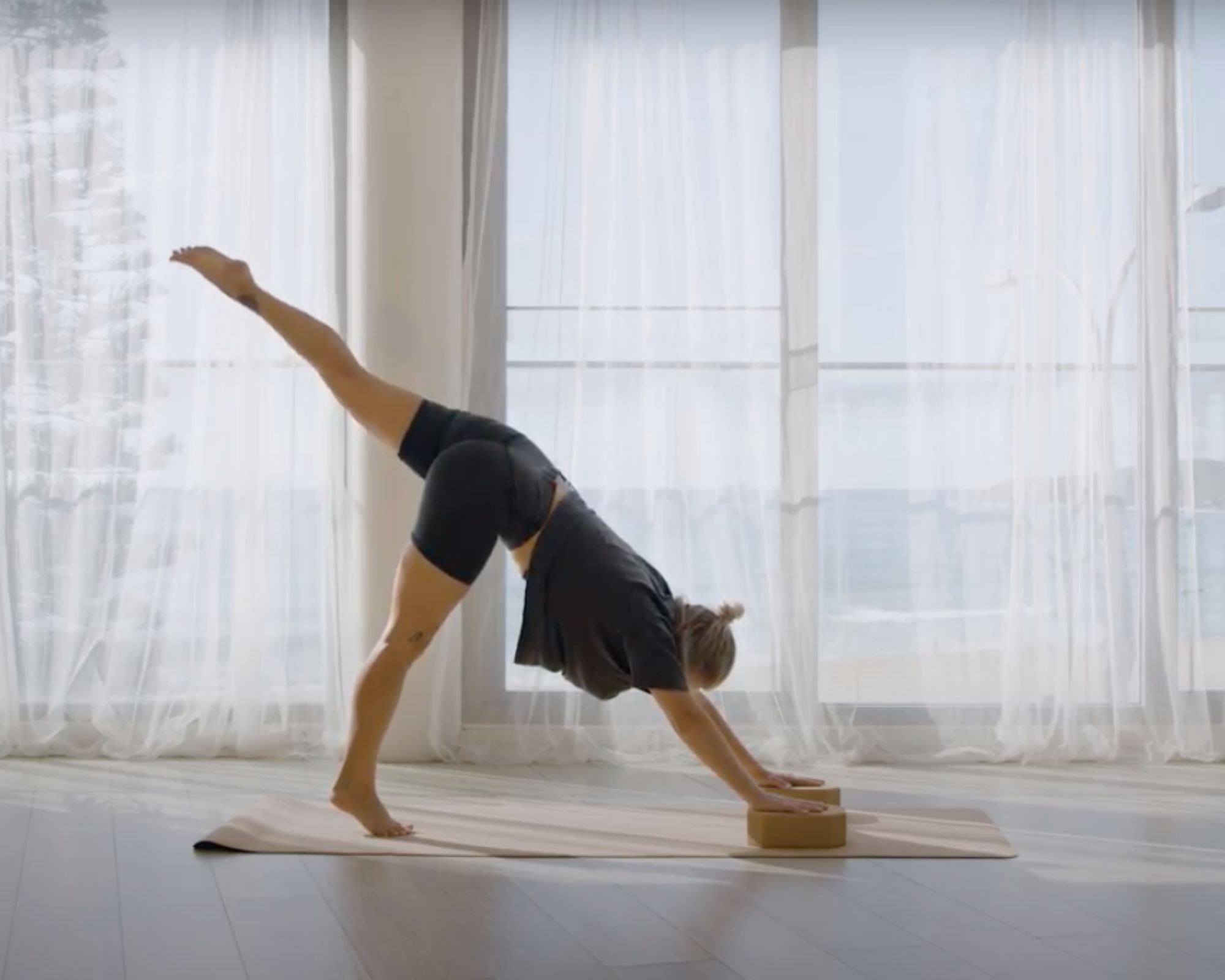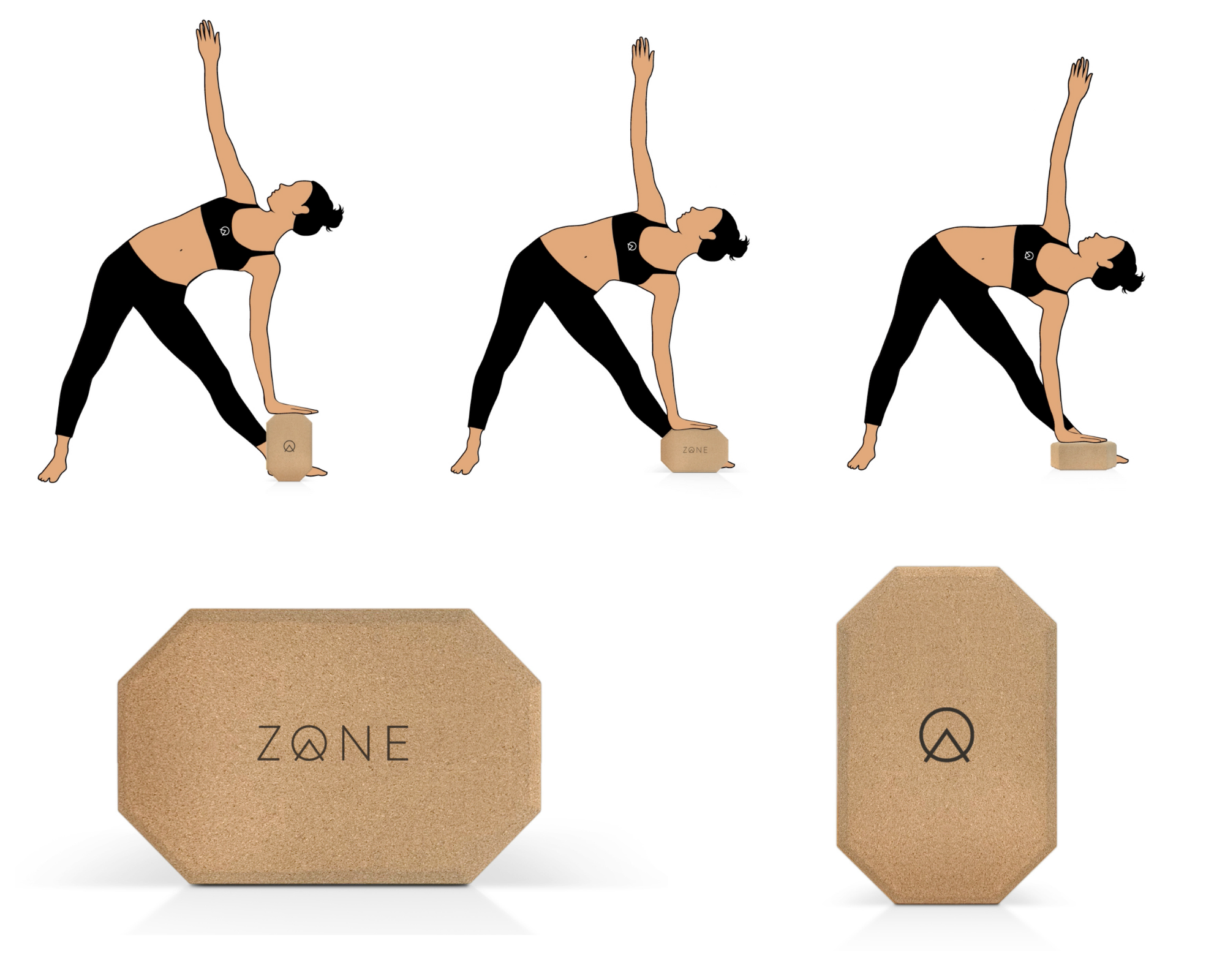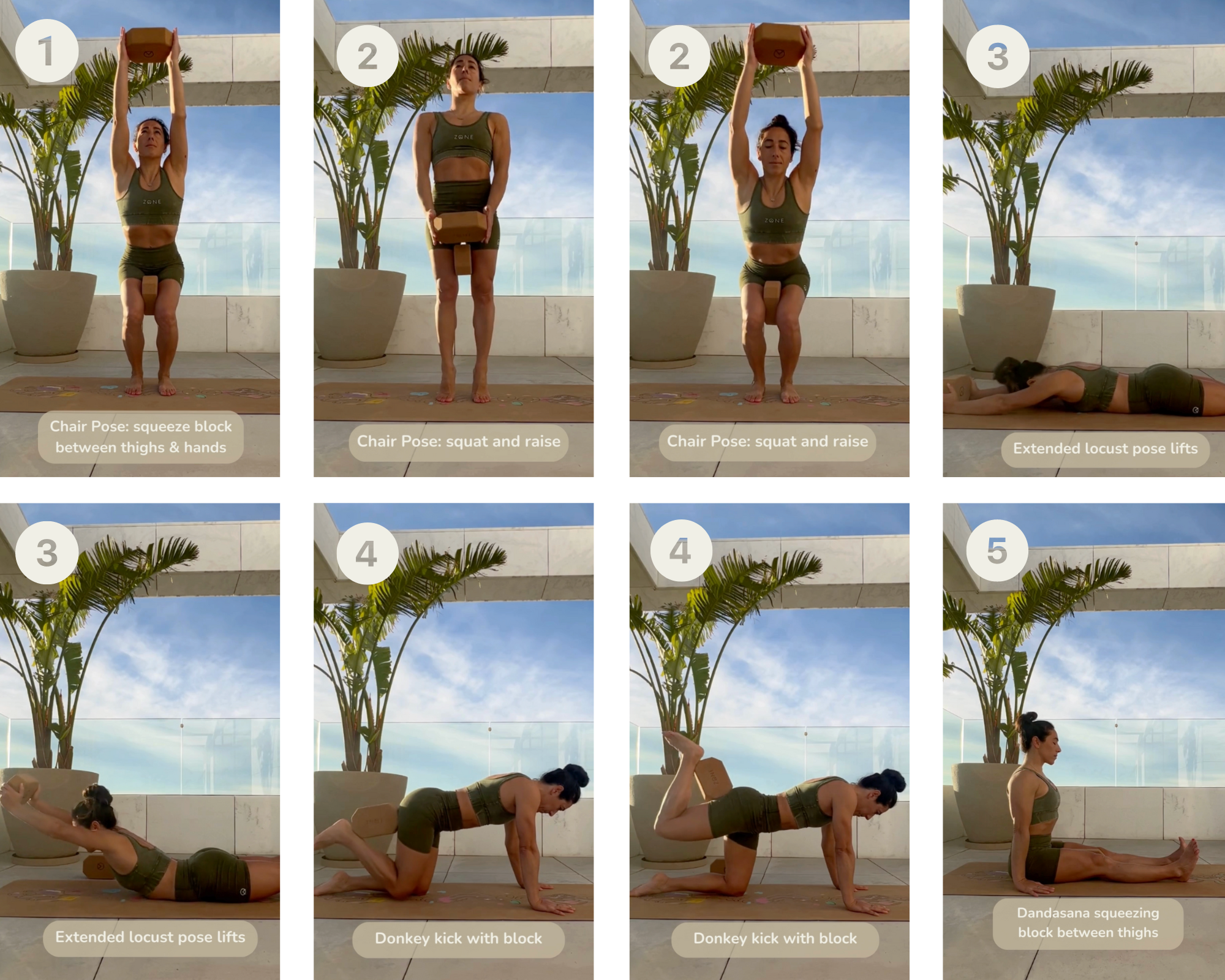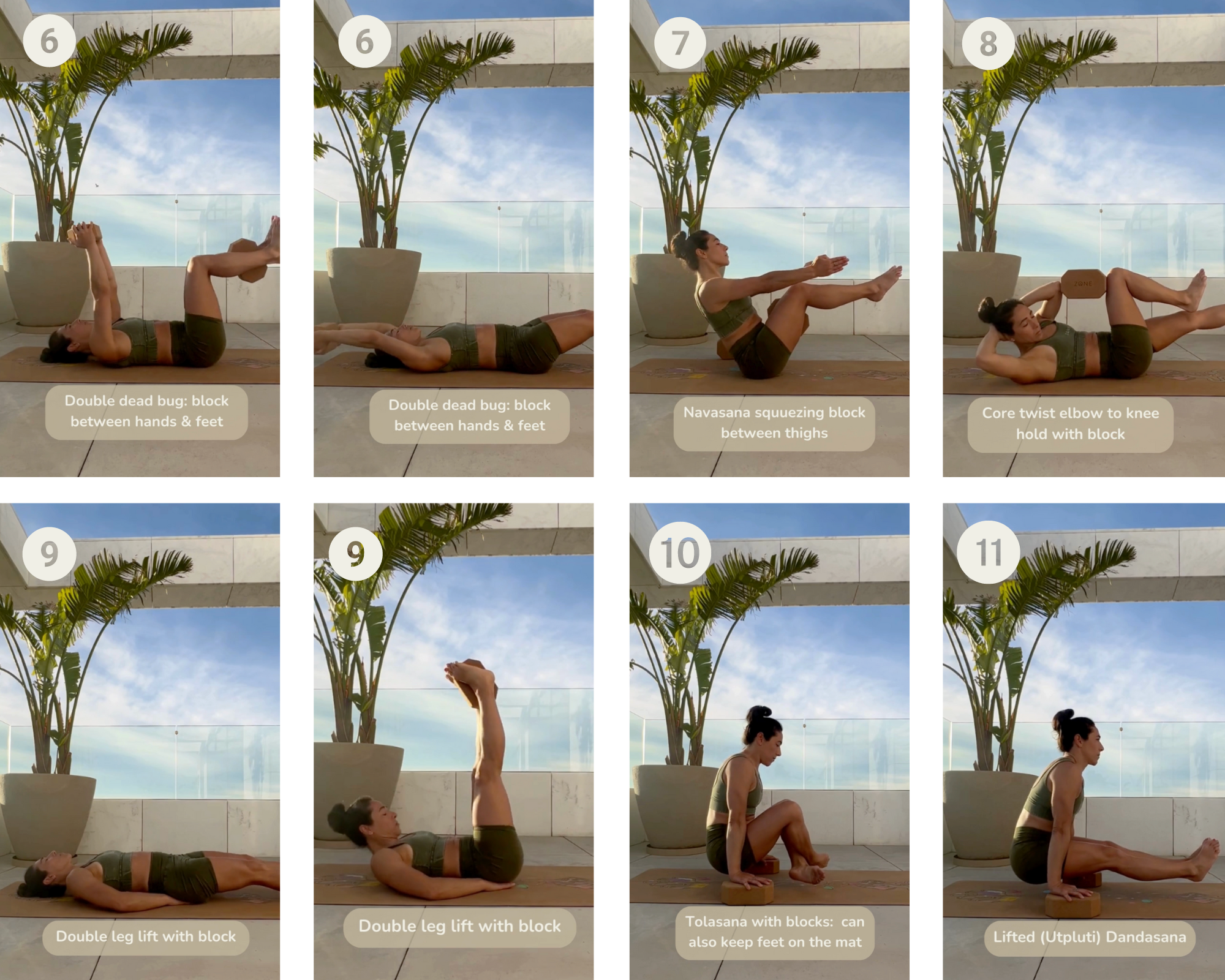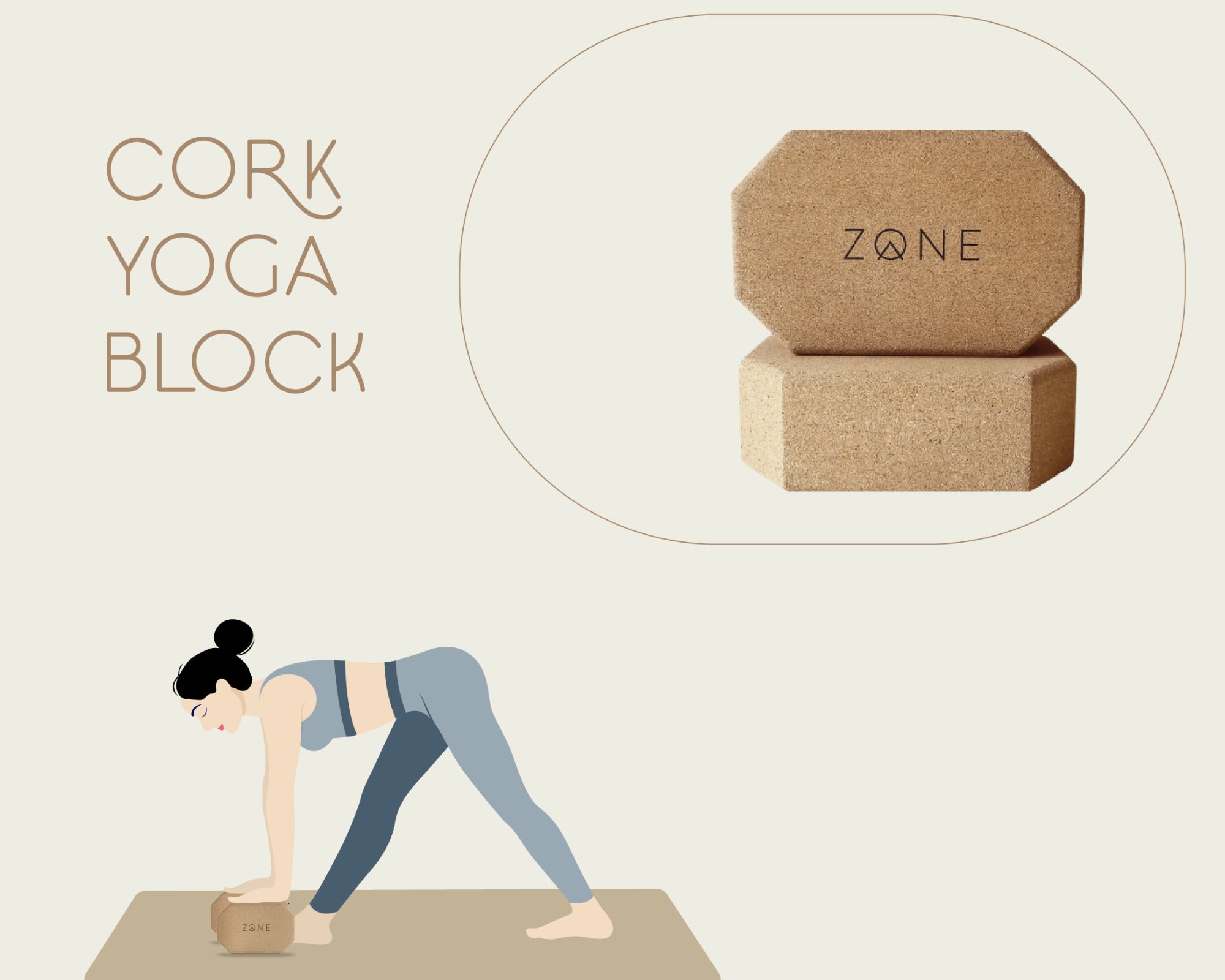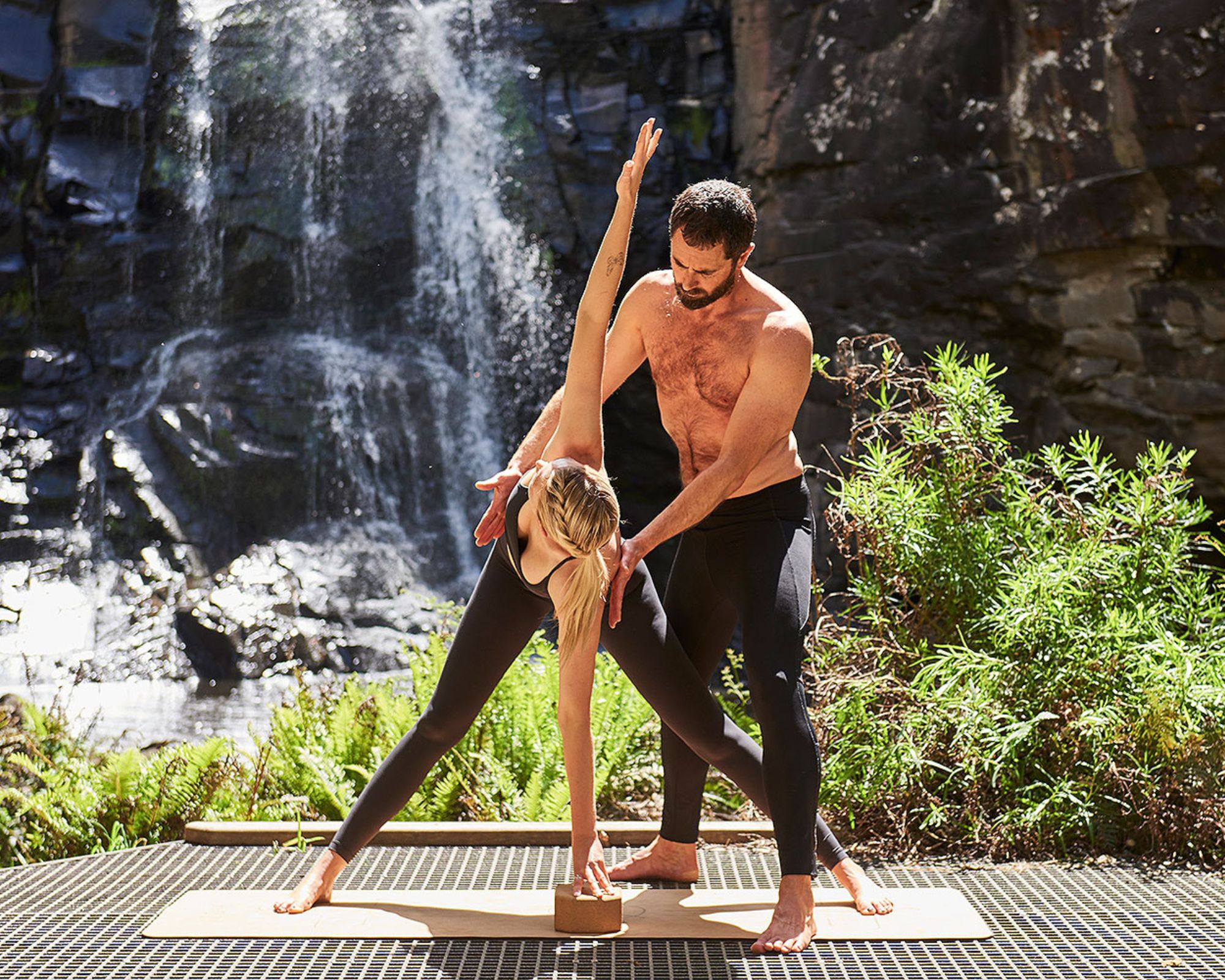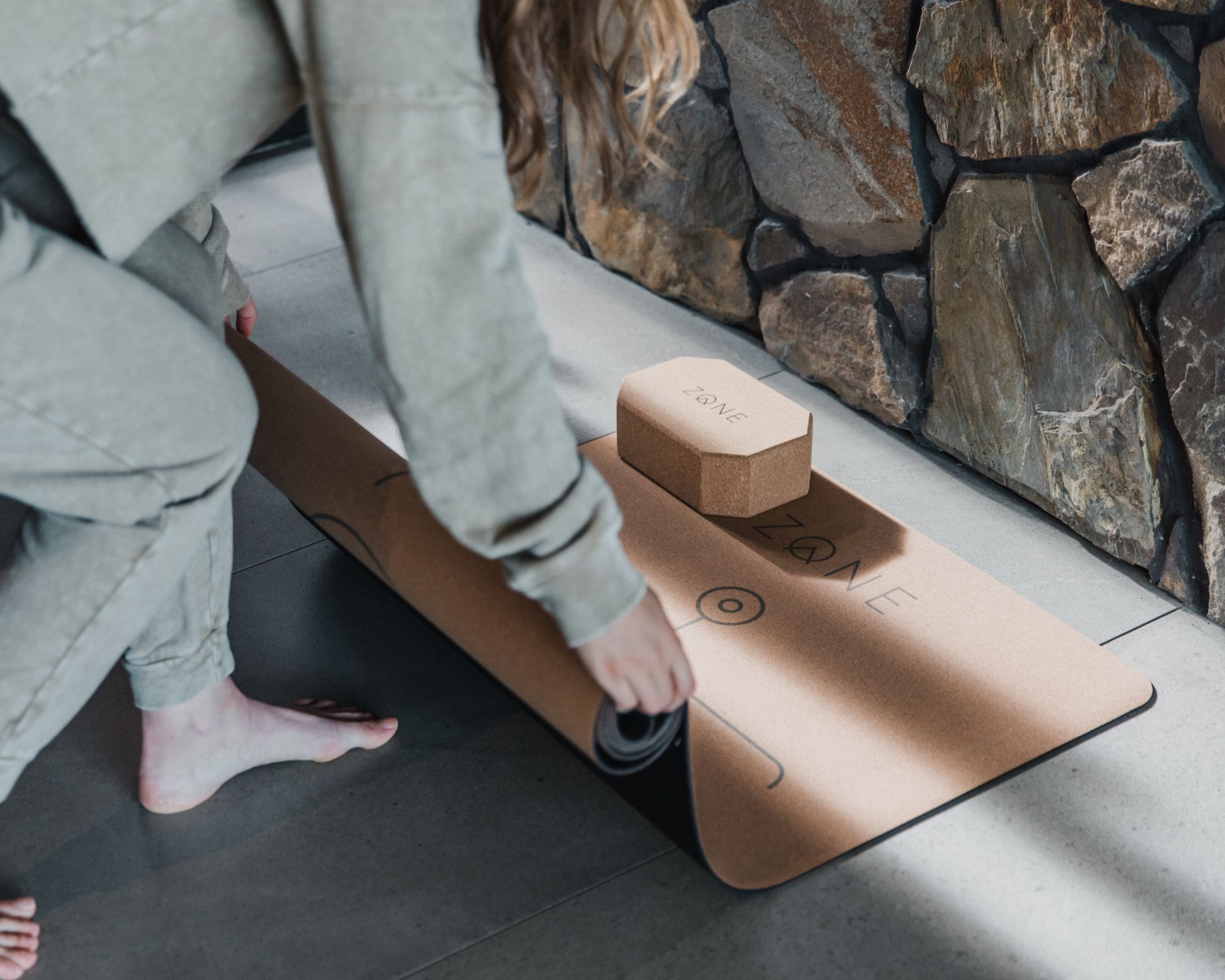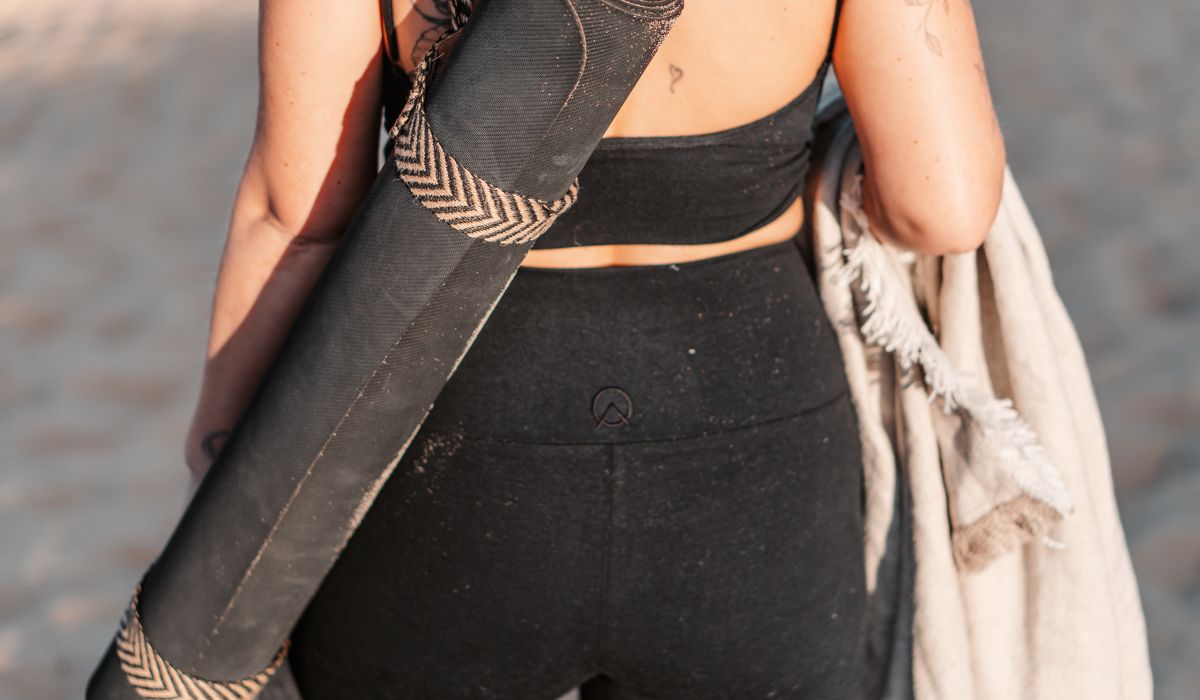What are the benefits of yoga blocks?
If you’ve ever assumed that yoga blocks and yoga props for that matter, are only for beginners, you're wrong!
Every single yoga pose can be modified or intensified by using a yoga block, making them the most versatile tool around even for experienced yogis.
One of the main benefits of using yoga blocks is the ability to modify and refine yoga poses, allowing practitioners to adapt postures to their individual needs and abilities. For experienced yogis, yoga blocks provide an opportunity to delve deeper into poses, explore variations, and work on specific aspects of alignment and balance.
This versatility not only fosters a more personalised practice but also helps prevent injury by ensuring proper form and alignment. Additionally, yoga blocks are instrumental in building strength and stability, providing a platform for targeted strength training exercises and aiding in the development of muscle engagement.
How Can Yoga Blocks Improving Strength?
Yoga blocks are commonly used as props in yoga practice to provide support, stability, and assistance in achieving proper alignment. While they are often associated with helping yogis access a pose with correct alignment, increasing flexibility and assisting with balance, yoga blocks are also really beneficial for building strength in the upper body in preparation for arm balances, increasing strength in thigh muscles and stabilising muscles as well as building a strong core.
Here are some reasons for why yoga blocks are an effective tool for any yoga routine.
Increased Intensity:
By incorporating yoga blocks into your practice, you can modify traditional poses to make them more challenging. This increased intensity can help target specific muscle groups and promote strength development.
Assistance in Difficult Poses:
Yoga blocks can be used to provide support in challenging poses, allowing you to maintain proper form while gradually building strength and stability. For example, you may not be able to achieve tolasana from the ground, but by using yoga blocks under each hand gives you are awarded extra height to be able to lift your feet off the ground.
Improved Alignment:
Using yoga blocks can assist in achieving and maintaining proper alignment during poses. This helps distribute the workload across muscle groups, preventing strain on one area and promoting overall strength development.
Enhanced Stability:
Balancing on yoga blocks challenges your stability and activates stabilising muscles. This can contribute to a stronger core and increased muscular and joint stability, which is essential for various balance poses and other complex poses.
Versatility in Your Workout:
Yoga blocks can be used in a variety of ways to add resistance and variability to your workout routine. For example, using blocks between your thighs in chair pose or dandasana engages different muscle groups and provides a completely unique strength-building experience.
Deeper Muscle Engagement:
Incorporating yoga blocks into poses requires additional effort from muscles to stabilise and control movements. This deeper muscle activation and engagement can lead to increased strength in specific areas, such as the core, arm muscles, and legs.
Gradual Progression:
Yoga blocks are and excellent tool for beginner yogis as well as advanced yogis. They allow for gradual progression, enabling beginners to engage the correct muscles and build strength over time by adjusting block heights. Our cork yoga blocks, provide three height options - the lowest height being the more stable option. Our cork yoga blocks have beveled edges which helps fingers and hands to grip the block comfortably.
Yoga blocks are an essential tool for any yogi wanting to progress and enhance their practice. Try these strength building exercises using cork blocks in your yoga practice.
Get your yoga block and try these strengthening poses:
Cork yoga blocks vs foam blocks
When traditional yoga blocks entered the West in the 1970's, they were made of wood. Wooden blocks provide a stable and durable surface, however, wooden blocks are heavy to transport and get slippery under sweaty conditions. Since the 70's, foam and cork yoga blocks have become common place. Both types are durable and offer support, stability, and versatility. However, there are some differences between the two from a performance and sustainability standpoint.
Here's a comparison of the benefits of cork yoga blocks versus foam blocks:
Cork Yoga Blocks:
Natural and Eco-Friendly:
Cork blocks are made from the bark of cork oak trees, making them a natural and sustainable yoga block. The harvesting process is environmentally friendly, as it doesn't harm the trees, which can regenerate their bark. Cork is a natural material which means cork yoga blocks are also biodegradable.
Firm and Stable:
Cork blocks are relatively dense and provide a firm and stable surface. This is advantageous for poses requiring a solid base, as the blocks are less likely to compress under pressure, offering reliable support.
Non-Slip Surface:
Cork has a natural substance called suberin that is released when exposed with moisture. This increases the grip of cork and provides a non-slip surface. This is beneficial for maintaining a comfortable grip, especially during sweaty or intense yoga sessions. This non-slip feature can enhance stability in poses where a secure foundation is crucial.
Durability:
Cork blocks are known for their durability. They can withstand regular use over time without losing their shape or breaking down, making them a long-lasting investment.
Heavier Weight:
The added weight of cork yoga blocks gives them excellent stability and brings extra challenge to core exercises and overhead poses making them a perfect addition to any strengthening yoga flow.
Antibacterial:
Cork has some impressive antibacterial properties. Cork yoga blocks exhibit natural antibacterial properties due to the presence of resins and suberin, which inhibit bacterial growth and make cork resistant to moisture absorption. With low porosity, cork discourages bacterial accumulation, and its hypoallergenic nature minimises the risk of allergic reactions. The material's resistance to mould and mildew, combined with its durability and ease of cleaning, contributes to a hygienic surface for yoga practice.
Foam Yoga Blocks:
Lightweight and Portable:
Foam blocks are lightweight, making them easy to carry and transport. This feature is advantageous for those who travel frequently or prefer a more portable yoga prop.
Soft and Comfortable:
Foam blocks offer a softer surface compared to cork, which can be more comfortable for some practitioners, especially during restorative yoga. The softer material is gentler on the body, making foam blocks suitable for restorative poses or therapeutic practices. However, given that foam blocks compress under weight, this poses a stability issue when performing balancing poses.
Affordability:
Foam blocks are often cheaper than cork yoga blocks. This makes them an attractive option for individuals on a budget or those who are just starting with yoga props. However, foam blocks are often made from toxic materials that will not biodegrade over time.
Variety of Colours:
Foam blocks are available in a wide range of colours, allowing for fun personalisation and aesthetic preferences however the dyes often used mean that they are not a sustainable option when compared to cork.
Natural cork wins on function and sustainability
Cork yoga blocks stand out as a superior and sustainable choice compared to foam blocks for several compelling reasons. Firstly, cork, derived from the bark of cork oak trees, boasts inherent antibacterial properties due to its natural resins and suberin content, promoting a stable, comfortable grip during any yoga practice. Unlike foam blocks, which are petroleum-based and non-biodegradable, cork is a natural, renewable and biodegradable material. Opting for cork yoga blocks not only enhances the quality of one's practice but also contributes to a healthier planet by prioritising sustainability and responsible stewardship of natural resources.
Yoga Props Australia & Yoga Gear Australia
We have a range of restorative yoga props including cork yoga blocks, cork massage balls, jute yoga straps and cork yoga mats in Australia. We also offer sustainable yoga gear Australia! Add our ZONE cork yoga blocks to your daily routine and practice today!
